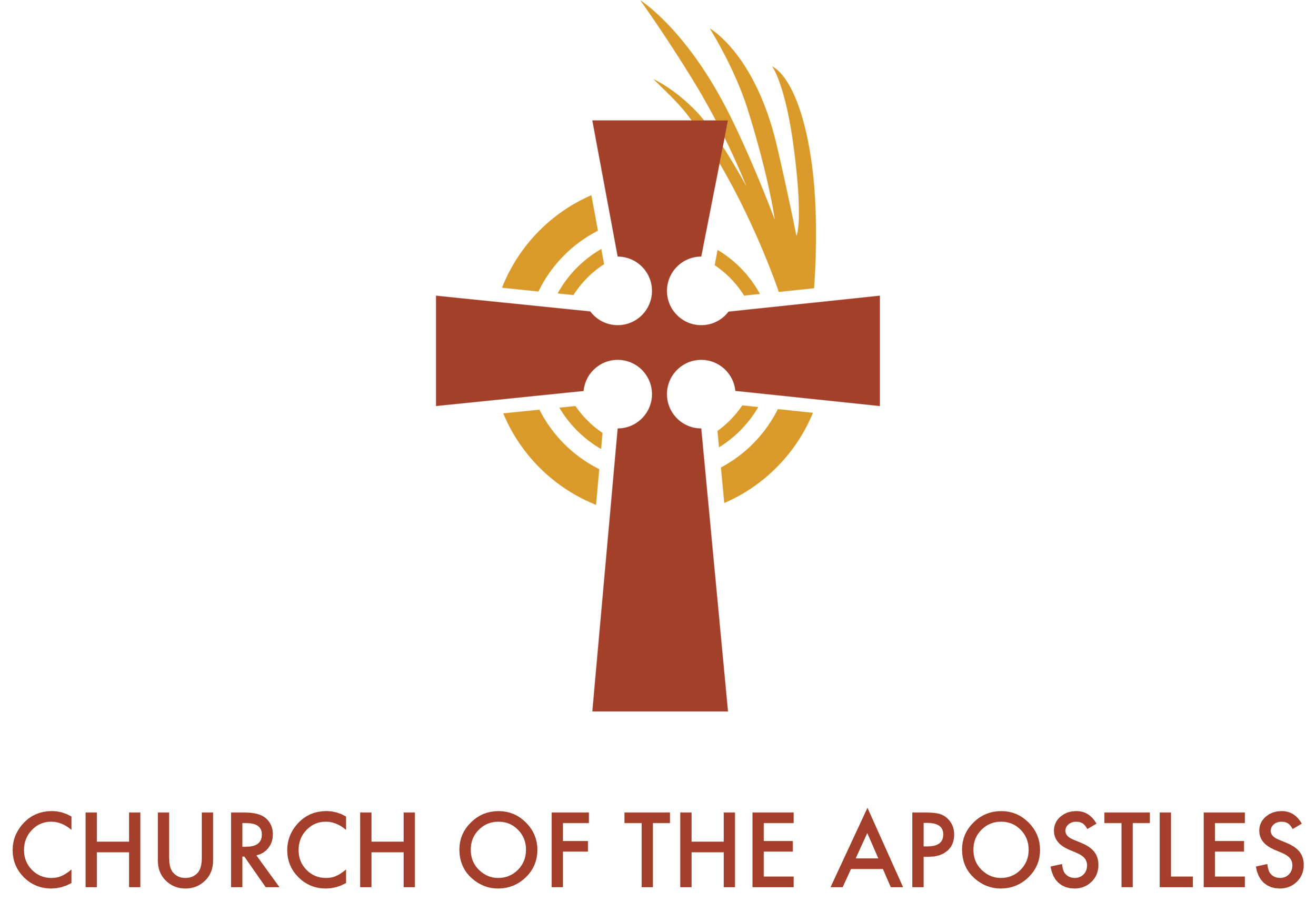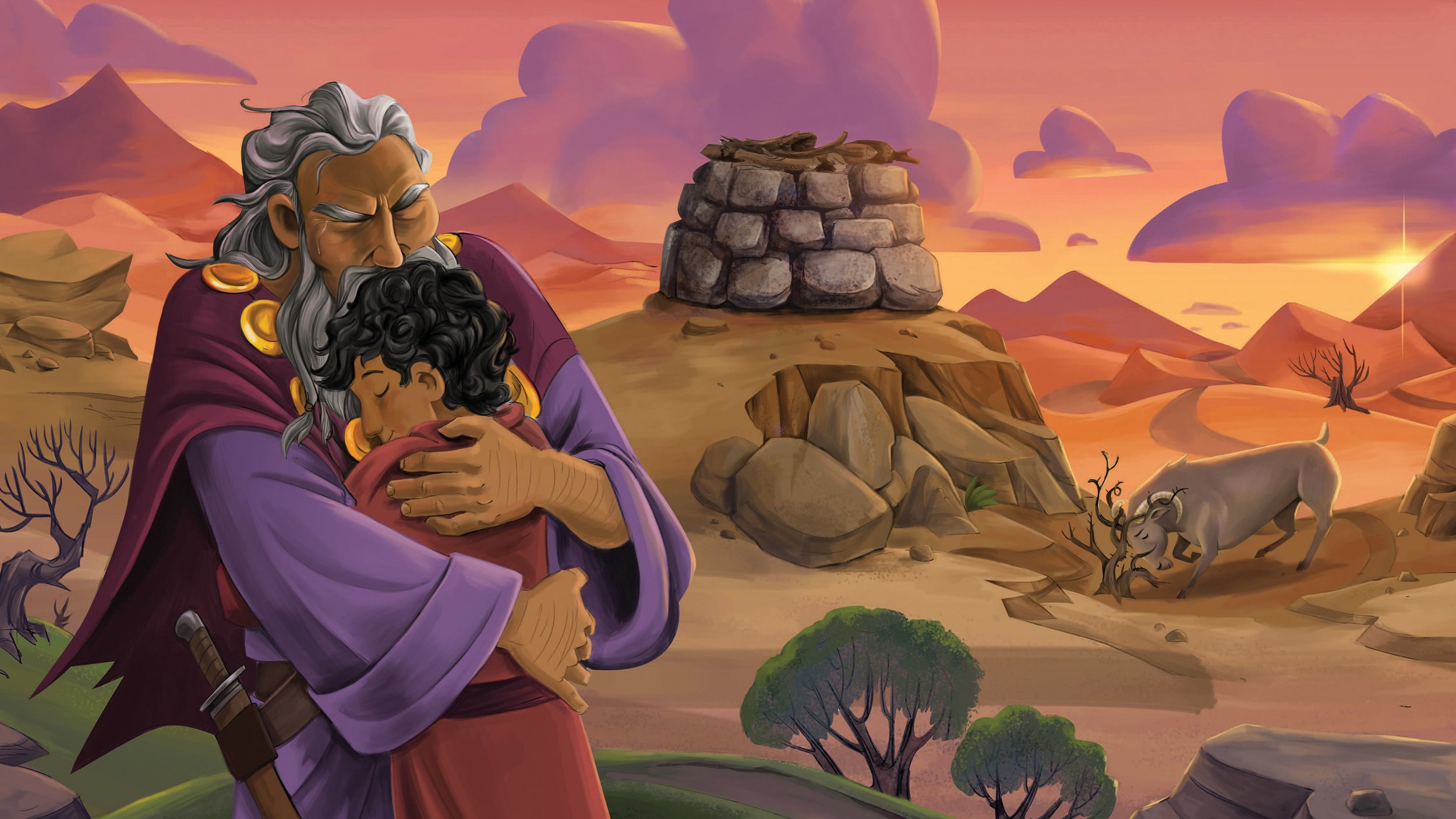Dear families,
We often think that fear is the absence of courage, and to some degree, it is. However, true courage is not someone who is free of fear. Courage comes to us most often, and especially when we are young, from the presence of another. In C. S. Lewis' The Voyage of the Dawn Treader, Lucy, the young heroine of Lewis' stories, was on a boat that went into the dark night of a cave where their worst fears were realized.
Going into the cave, they all were afraid. Inside the cave, their fears were realized. They were in the middle of the night and without hope, and Lucy (whose name means “light”) asked Aslan to send help.
Aslan (the Christ figure in Lewis' work) answered by sending his light into their darkness and his word to her heart. He said, "Courage, dear heart."
The gospel tells us that our greatest enemy, sin, and our greatest fear, death, has no hold on us—not because of courage that rises up from within us, but from courage that came from outside of us. Jesus came from outside of us and said to us through his life, death, and resurrection, "Courage, dear heart."
The promise of peace, true rest that Moses and now Joshua sought, was not conditional on what they saw in front of them. It was based on the character of God. The promise God gave to Joshua was the promise of His presence in the middle of the dark night. This promise is true for us and is experienced in the person and work of Christ.
As you prepare to teach, take a moment to allow the Person of God's Spirit to whisper to your heart what God's Word proclaims to be true, no matter how difficult your week or dark your night. You are loved, you are cared for, you are not alone. Christ is with you. Christ has gone before you; Christ is interceding for you.
Remember the words God gave Joshua: “Haven’t I commanded you: be strong and courageous? Do not be afraid or discouraged, for the LORD your God is with you wherever you go” (Josh. 1:9). What a promise. What a Savior.
Check out The Gospel Project At Home for resources designed to help you lead a family worship experience as well as suggestions for morning and evening prayer times and family activities.
FAMILY TALKING POINTS
CHRIST CONNECTION
This is the big idea of how this week’s Bible story points to Jesus.
● Babies & Toddlers: Jesus leads us into the promised land of God’s kingdom.
● Younger Preschool: Joshua led God’s people into the promised land. Jesus leads us into the promised land of God’s kingdom.
● Older Preschool: God encouraged Joshua and promised to be with him. Joshua led God’s people into the promised land, where they would find rest. We have true rest in Jesus, who is with us always. Jesus leads us into the promised land of God’s kingdom.
● Kids: God encouraged Joshua and promised to be with him as he led the Israelites into the promised land, where they would be victorious and find rest. We have victory over sin and rest for our souls in Jesus, who is with us always and leads us into the promised land of God’s kingdom.
BIG PICTURE QUESTION & ANSWER
This is an important biblical truth that your child will encounter each week of this unit.
● Younger Preschool: What is the Bible? The Bible is God’s words to us.
● Older Preschool: What is the Bible? The Bible is God’s Word.
● Kids: What is the Bible? The Bible is God’s Word that tells us what is true about God and ourselves.
KEY PASSAGE
This is a Bible verse that relates to what your child will encounter each week of this unit.
● Babies & Toddlers: God’s word shows my path. Psalm 119:105
● Younger Preschool: God’s word shows my path. Psalm 119:105
● Older Preschool: Your word is a lamp for my feet and a light on my path. Psalm 119:105
● Kids: Your word is a lamp for my feet and a light on my path. Psalm 119:105
** Next week:God Stopped the Jordan River (Joshua 3–4)




















